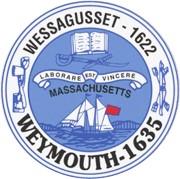Weymouth Town Council approves Mayor Hedlund’s $174 million dollar budget for FY20

Town Council unanimously voted to approve the fiscal year 2020 budget proposed by Mayor Robert Hedlund. The adopted FY20 operating budget is $174,445,532 and will fund Town operations from July 1, 2019 through June 30, 2020. The FY20 budget represents a 3.4% increase over the FY19 budget.
Total budget increases for FY20 were roughly $5.8 million with over $2.8 million of that being attributed to the School Department budget increases. Other notable expense increases included: pension and retirement costs, state assessments, and the reserve fund.
The 3.4% overall increase reflects a slowing of budget growth and increases seen in recent fiscal years. Since FY16, the operating budget has grown 4.1% on average. The even more modest increase for FY20 is attributed to slowing revenue growth, specifically, decreasing revenue growth from local receipts and property taxes. While new growth (property subject to taxation for the first time) doubled from FY17 to FY18, it leveled off in FY19 and is projected to remain around that same level in FY20. In addition, local aid from the state is projected to increase by only 2.5% while offsetting state assessments have increased over 12%, largely due to continued increases to the Charter School tuition assessment.
While the slowing revenue growth has resulted in an even more conservative budget overall, the Administration prioritized needs with the resources available and were able to address areas of need, including police, fire, and schools.
“Each year the Administration and Staff work to improve the service delivery of the Town without over-spending or putting the Town in an unstable financial position,” said Mayor Hedlund. “While FY20 presented a slowing down of the growth from the last few years, we were still able to increase school funding, add two new police officers, two new firefighters, and increase our stabilization fund to $7 million, which is over 6-times what it was when I took office.”
As with previous years, Mayor Hedlund’s Finance Team, led by Chief of Staff Ted Langill, analyzed trends and needs for each budget line item before deciding to level fund, increase, or reduce.
“I’m a firm believer in budgets that reflect actual spending trends and needs. Some hesitate at reducing over-funded line items for the sake of an unknown future. I focus on what is known and use funding where it is needed,” said Langill. “So, instead of level funding line items where it will not be used, we shift that funding to areas of need, allowing us to limit the overall budget increase.”
The result for FY20 is that more than a dozen town department budgets will actually decrease or grow by less than the 3.4% average. For the FY20 budget, 375 line items were level funded, 85 line items were increased, and 69 line items were decreased, amounting to nearly $1.7 million in savings. These numbers do not include the School Department budget which is voted on as a single line. Increases in the school budget were attributed to the addition of staff on the needs list including several SPED teachers and paraprofessionals, a program job coach, and Career and Technical Education teachers and paraprofessionals.
The following chart shows a breakdown of FY20 spending for Town departments:
| Department | Total $ Amount | Percent of Total Operating Budget |
| School Department | $73,619,894 | 42.2% |
| Pension/Benefits | $35,722,686 | 20.5% |
| Police Department | $13,425,763 | 7.7% |
| Debt Service | $10,668,428 | 6.1% |
| Department of Public Works | $10,306,303 | 5.9% |
| Fire Department | $9,387,092 | 5.5% |
| State Assessments | $6,272,598 | 3.6% |
| All Other | $15,042,768 | 8.6% |
The $73.6 million school budget reflects a continued commitment by Mayor Hedlund to invest in public education and continue Weymouth’s recent progress in addressing school needs and improving the educational opportunities for Weymouth students. With Mayor Hedlund’s commitment to public education, Weymouth now outpaces the state when it comes to net school spending growth.
Despite the slowing down of revenue growth, the Town has poised itself to be in a sound financial position moving forward in the event of an economic downturn in the near future. Mayor Hedlund continues to increase the Town’s Stabilization Fund and actively seek and receive grant funding for larger capital projects, such as the New Tufts Library and New Chapman Middle School, to address funding constraints and not over burden the taxpayers.
In addition to the operating budget, the Council also approved over $5 million in free cash spending on capital items such as replacement police cruisers and public school IT infrastructure improvements. Under Mayor Hedlund, the Town has adopted a policy of using Free Cash for one-time funding and not recurring operating expenses so as to not create structural deficits. Mayor Hedlund also presented a five-year Capital Improvement Plan to ensure capital needs are anticipated, accounted for, and utilize available free cash to fund the one-time purchases, which has also allowed the Town to utilize more of the its debt service on additional, more expensive capital needs.
The budget planning process begins as early as December of the previous fiscal year and is presented beginning in April each year. Additional information on the budget as well as recent budget presentations, revenue projections, and prior years’ budgets are available on the Mayor’s budget page (https://www.weymouth.ma.us/about-weymouth/pages/budget). Residents may also contact the Mayor’s office to find out more about the FY20 budget at 781-340-5012 or rhedlund@weymouth.ma.us

